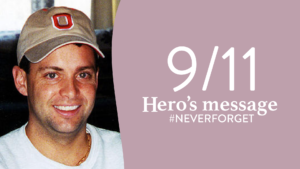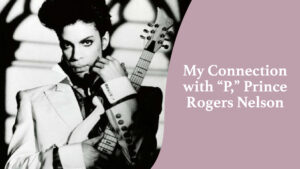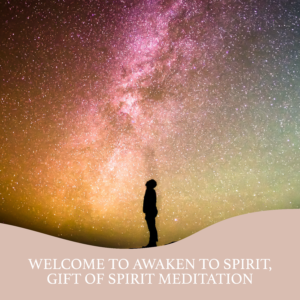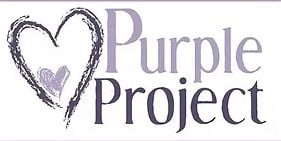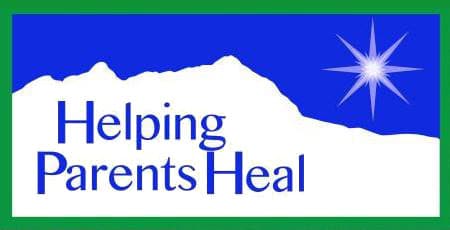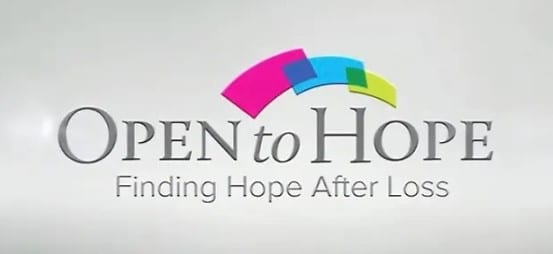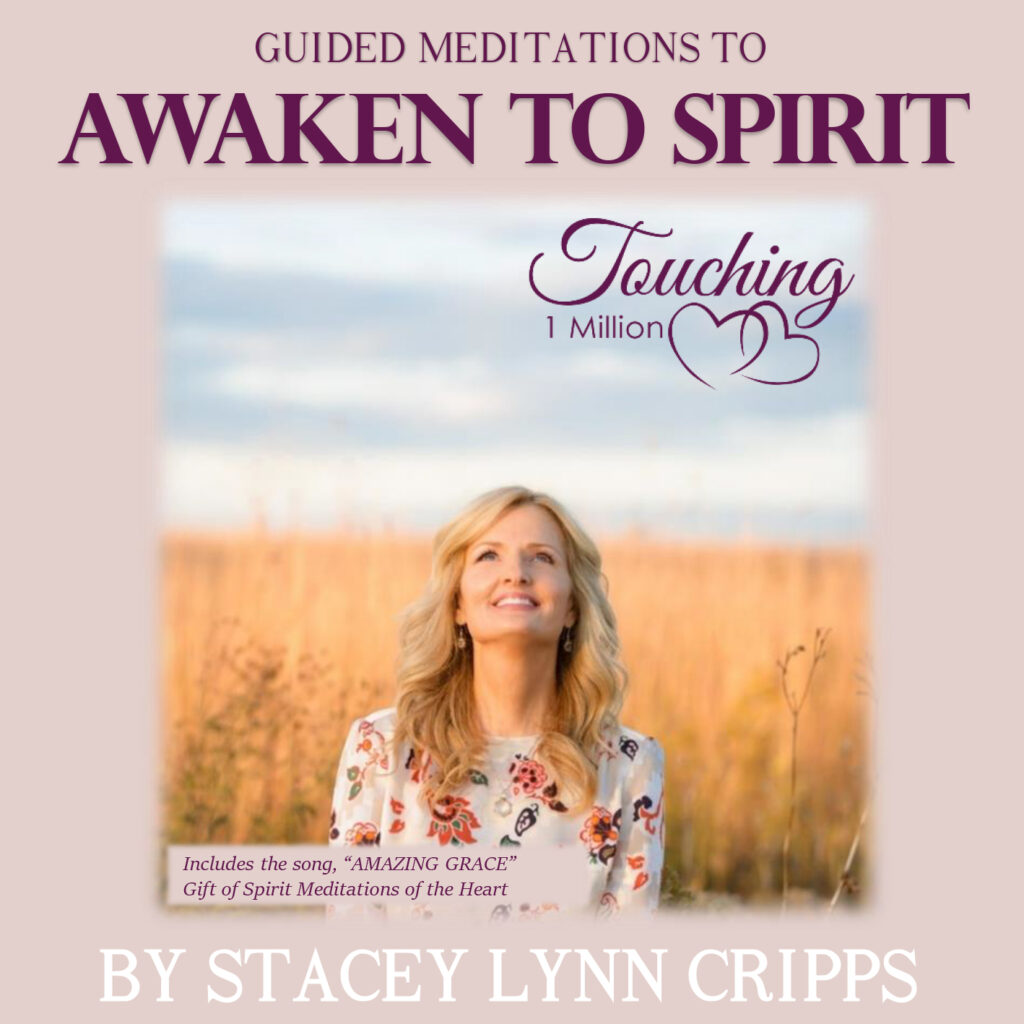You can listen to our full episode here, or continue reading below:
![]()
Stacey: Welcome to the Gift of Spirit radio show. I am Stacey Lynn, your host. I am so excited to share Part 2 of our show featuring our guest, a sought-after motivational speaker and Hay House author, Mike Robbins. If you haven’t done so already, you can listen to Part 1 of my interview with Mike Robbins here.
In this follow-up post, we share Mike’s thoughtful replies to questions from our callers.
Caller Mal asks: Why do you think we’re so hard on ourselves?
Mike: That’s a great question. I think there are a couple reasons, Mal. Most of us, in our own different ways, put these ridiculous different perfection demands on ourselves. If we expect perfection, we’re always going to fall short.
Look at the world we live in. This is not to blame the media or society, but whether we’re looking at a magazine watching television or a movie or even just looking at other people’s Facebook pages, everyone is putting out their highlight reel and we’re comparing it to the behind-the-scenes for us. It doesn’t seem to match up.
It’s this idea that Stacey and I were talking about before the break, me growing up thinking I was crazy because I had all these doubts, fears and insecurities, only to realize, of course, everyone has them, but we just don’t talk about them.
The other reason I think we’re so hard on ourselves is because we’ve actually been trained to be, if you will. We somehow put it as a virtue in our culture to be self-critical, or depending on our age, how we were raised or the mentality of our parents, “Don’t be too full of yourself. Don’t be too big for your britches.” Whatever statement we were told. Stand in line. Stay in line. Some sense of that.
Even as the pendulum has swung in the other direction with how we parent, kids are now taught to believe in themselves, have self-esteem and think they’re the best. I think there’s this idea in our culture that you have to be the best of the best. You can’t just win the silver medal. You have to win the gold medal. It gets idealized in a way.
All of that comes down to, on a very basic human level, can we deal with ourselves and our emotions and have more compassion, instead of writing all those shame stories that we do? Does that make sense?
Mal: I think it’s how we set ourselves up. We have this idea that we have to be perfect. Media, magazines, everything creates this false image that women have to live up to.
Do you know what? Hogwash. Be yourself. Be authentic. Be truthful. As you were talking about earlier, Stacey, when we show up and when we are in our truth, we’re unstoppable.
Mike: You know what’s interesting, Mal? I think there are standards that we put out in our culture for women and for men. What does a successful woman look like, act like, do? They’re caricatures. They’re not real. It’s not reality. Most of us, in our minds, men or women, are holding ourselves to some ideal standard. An ideal woman does this, an ideal man does that.
Every man or woman I’ve talked to has been honest with me about it. We always feel like we’re falling short. There’s a fantasy in our mind about how we’re supposed to be or what someone is supposed to look like, act like.
That’s, again, part of my own passion and my work. Let’s get real. It’s not like we’ll sit around and commiserate, whine and complain. No, but let’s just tell the truth about what it’s really like to be human and what we’re really dealing with. Then, at least we’re dealing in reality, as opposed to some made up fantasy that makes us all feel bad about ourselves.
Stacey: We’re moving through it. We’re not moving against it. Pushing it down like a suitcase. We’re actually feeling it fully and letting it come up, so we can heal, grow and move forward. Mike, in your book, you talk about surrender, letting go. I talk about that quite a bit, too. What does that actually mean and why is that so important?
Mike: I think surrender means a couple of things. Like many of the things I write about and speak about, it’s easier said than done and definitely can fall into the realm of teaching best what I most need to learn, because surrendering is not the easiest thing for me.
I think surrendering is really about trusting. Trusting yourself. Trusting life. Trusting God. Trusting the process. Trusting that things are unfolding the way they’re meant to.
It’s not that we don’t have will, we don’t intervene and we don’t take action, or any of that. I think of the great quote from Byron Katie that I love. She says, “When you argue with reality, you lose, but only 100% of the time.”
There’s some sense of when we’re often in the most difficult, challenging spots in our lives, resisting what’s actually happening. We’re pushing against it, in a way that’s not helpful to us.
One of the meditation techniques that I talk about in Nothing Changes Until You Do– there’s a free audio that’s connected to this- is this meditation technique that Eleanor taught me.
It’s around embracing powerlessness, which at first, when she mentioned that to me, sounded horrible. I was talking to her about some stuff I was dealing with that was frustrating and she said, “Sounds like, Mike, what would be really beneficial to you is if you embraced powerlessness.”
My reaction was, “Why would I do that? That sounds terrible. Powerlessness? I’m a powerful person. I like to empower other people.” I went off on this whole speech about powerlessness being bad.
She said, “Listen. The feeling of powerlessness is different than being powerless. If you can’t embrace the feeling of it, what ends up happening is you render yourself powerless.”
I said, “Wait. What are you talking about?” She explained it to me. She led me through this little meditation process. It was going to meditation, closing my eyes, and visualizing myself laying in a field of grass.
Imagine the grass turns watery. Now I’m floating, being suspended, being held up by the water. It’s safe. It’s peaceful. The mantra that she told me is, “I give myself permission to feel powerless. Just because I feel powerless doesn’t mean I am powerless.”
To say that and to feel that, the feeling of powerless, ironically when we feel that sense of powerlessness, it’s incredibly empowering. It’s one of those emotions, like fear, anger, sadness or grief. We don’t want to feel, so we push it away. When we embrace it in- wow- it just moves through us. Then I can really more surrender to whatever’s happening in my life.
Stacey: I feel that. I also feel so much peace. I could visualize you in the water and letting go. It’s peaceful. It’s the highest vibration that there is.
Caller Noelle asks: What is a new way to look at life with regards to parenting?
Mike: I have two girls who are nine and seven. One of the things about parenting, it’s interesting with boys- having been one- I think as it relates to our children and their emotional health, one of the best things we can do is focus on our own emotional health, as best as possible.
They’re paying attention to us. What ends up happening is our kids tend to model us, especially the younger they are. Yours are getting a little older, but even still, especially your 10-year-old, but then your teenage sons.
What they tend do, a lot of times, especially when they’re really little, they’re feeding off of us, not even what we’re saying, but how we’re feeling energetically, the consciousness with which we’re holding things.
I think we do a pretty good job, for the most part, although most of us as parents lose it from time to time, of being mindful of the things that we say. Whereas a couple generations ago, the parenting language was very different than it is now.
I think what ends up happening that we don’t necessarily do a good job with is dealing with ourselves on an emotional level. The more we can model for our children what it looks like to have a very full and rich emotional life, what that means is you’re willing to feel and express your emotions in a healthy way.
You don’t resist them. You don’t avoid them. There are not three or four emotions that are okay and the rest are out of bounds.
What can happen with boys specifically, I know this is tricky sometimes with moms and boys, the boy energy- you know, you have 16 years of raising boys- can be intense.
They’re physical and they might be loud. They’re rough and tumble, especially when they’re little. Then, as they get to be teens, one of the trickiest parts, I think, for teenage boys, especially with their mothers- I don’t think people talk enough about this but I know this happened with me and my mom- there’s a really interesting and scary thing that happens for a teenage boy when he becomes physically bigger and stronger than his mother. It freaks him out and no one talks to him about it.
Not that either of your sons and then your younger one as well, as he gets to that age, would ever hurt you, but when they get to the point that they could and you get to point where you can’t physically manage them like you could when they were little, it’s actually really scary for both the mom and the son. No one talks about it.
It’s this weird, unspoken thing that happens. All of a sudden, he’s not a man yet, but now your 16-year-old is physically starting to look more like a man. You think, “Whoa, that’s a trip.”
Noelle: Yes, the two of them remind me every day that they’re taller than me. It’s a big, big deal in my house.
Mike: That’s a big deal. Part of it is honoring that process that they’re going through. This I think is one of the hardest parts about parenting: our children are changing constantly.
There are certain ages and phases that we like more than others. If you have multiple kids- this is another thing we don’t like to talk about- there are times we like one our kids more than our other kids. “That one’s my favorite.”
You would never say it out loud because it’s terrible, but one of them is easier to deal with. One of them is sweeter to you than the other one. You have three, so it could move around.
Again, the more real we can be with ourselves. There are some conversations we don’t want to necessarily have with our kids based on age appropriately, but with our spouse or with other parents we trust, do we have a place where we can go and get real with what’s going on for us as parents?
The reality of parenting for the most part is, we love our kids and sometimes it’s frigging awful being a parent. “I didn’t sign up for this. I don’t want this. I don’t like this. I’m not prepared for this. I’m not qualified for this.”
All that stuff happens, and if we don’t deal with that in some healthy way internally, we end up dumping that all over our kids unnecessarily. I think the difference between fathers and daughters and mothers and sons, because there’s the gender difference, at times there’s a sweetness to it, but at times there’s a real confusion.
As father and a son, your son might act very differently than you did. However, being of the same gender, there are certain things you can relate to and understand. When you’re of the different gender, they sometimes can seem like aliens. You think, “I don’t understand that. I was never a 16-year-old boy.” You, as a woman, might look and think, “I have no idea what he’s going through at this time.”
That’s true. Even my mother, who was a single mom, really struggled with this, to realize that she couldn’t father me. She could only mother me. There were certain things that I needed that she couldn’t provide.
That was really challenging for her. She did the best that she could, but that emotional awareness, if she had had that, would have been really helpful for her and for me. “You know what? You probably need some support from some good men. Let me see what I can do to find some for you.”
Stacey: Mike, that is so true, focusing on our own emotional health with our children. I have a 12-year-old boy and he’s going through that change. It’s so important that we model that, but also that we feel our own emotions in front of them, so that they know it’s safe, that we’re not trying to be, I’ll say, perfect. It sends a different message.
Mike: It’s true. My girls- Samantha’s nine and Rosie is seven- it’s interesting to watch certain things that they do and say. I watch them watch me and Michelle, my wife.
I’m a pretty emotional person. I always have been. My girls have seen me cry a number of times. It’s interesting because there are few times it’s probably scared them. I understand that.
We’ll sit and watch a movie and daddy’s usually the first one to cry when we’re watching a movie. They always say, “Daddy, why are you crying?” Daddy just likes to cry. That’s what happens.
I remember when Samantha was younger and she was trying to understand the difference between happy tears and sad tears. Sometimes we have happy tears and sometimes we have sad tears.
I often have happy tears. I get inspired or moved by something and I’ll get moved to tears. To them, they say, “Why are you crying? You’re not sad.” I’ll say, “No.”
Again, it’s having those conversations. It’s being able to model that for our children as best as we can so that they know you’re a real living, breathing human being who’s dealing with all the ups and downs and twists and turns of being alive. It’s a great lesson to teach them if we can.
Stacey: Yes. Even when we were growing up- I don’t know about you, but I grew up in the 80s- I remember my mom, who has a huge heart, would also show her emotions on her sleeve, but my father didn’t.
It was quite a difference. It’s so important to get this message out there to all the parents out there. It’s the hardest job in the world. Feel as much as you can around your children so that they can feel as well.
Caller Charlie asks: What can people do to create a healthier relationship with their money?
Mike: I appreciate you asking. That was one of the more challenging things to include in the book. Michelle, my wife, and I went back and forth about if we wanted to share that or not.
I’m glad that I ultimately did. The story- you know from reading the book, but for folks who haven’t had a chance yet- is that we got ourselves into debt pretty significantly. This was back 2009/2010.
We were $105,000 in debt and $350,000 upside down on our house. Charlie, I think you live out here in California, in the Bay Area, and you know how expensive things are. Those numbers seem incredibly high, and they are. It’s the way life rolls out here in a lot of cases.
Ultimately for us, there were two things that happened. Eighteen months later, we were completely debt free. We had resolved our house situation. We ended up doing a short sale. We put the house on the market for what it was worth and sold it, which was less than we owed on it, but worked it out with the bank.
For us what happened, and I think this is true for most of us, there’s a practical side of it and then there’s an emotional, energetic side. From a practical standpoint, I think what’s really important for all of us is that we have to get real about it.
Michelle and I had to come to our knees a little bit and be humbled by it. We’re both pretty smart, well-educated and doing a lot of personal/Spiritual work for many years and understand lots of things.
When it really came down to it, we had a hard time making a budget, sticking to a budget and living within our means. We weren’t going on trips to Tahiti and buying $5,000 couches. We were just spending a little bit more than we were making every month, for months and years, and it caught up to us.
We were able to hire a coach who could sit with us and help us make a budget. We also did a great course called Financial Peace University, which was put on by a guy named Dave Ramsey, who has a syndicated radio show. He’s a best-selling author. That was on the practical side. It got us into a system. We’re going to focus on paying off our debt. We’re going to get real about it. We’re going to get some help.
On the more emotional side, a lot of forgiveness and compassion. Michelle and I, like most of us, have our own stories and our own wounds around money from childhood and from growing up, and then in our marriage and in our life.
When you get into a bad financial situation, there are usually mistakes you make and in hindsight, you look and say, “Gosh, that wasn’t a good idea. Maybe we shouldn’t have bought that house. Maybe we shouldn’t have done this.” We have to be able to forgive ourselves.
Charlie: Yes. How do you get over that, Mike?
Mike: Be real about it. Be real and compassionate at the same time. Be practical and also be healthy energetically and emotionally, if you can.
One of the big shifts that I made- this was my big inner shift/journey around paying off debt- I changed my relationship to paying off debt. I had a lot of shame around it. “How come we’re in debt? We keep going into debt. We keep getting almost out of debt and then getting back.”
I wanted to learn how to save money. I said to Michelle, “Let’s pretend that we’re practicing saving. Right now it looks like paying off debt and we’re starting in the hole, but as we pay this debt off, this is what it feels like to save. We have to save more than we spend, enough to pay down this debt.
“When eventually we pay off this debt, even if it takes us 10 years,” which is how long I thought it was going to take, “that money that we’re paying toward the debt will go towards savings. In the process, we’ll learn to save.” Amazingly, somewhat miraculously, a year and a half later, we were out of debt.
There are really good people out there who can help you, people who can help you invest money and do things at a very high level. However, there are people at a very basic level.
I think there are different phases of it. There’s making money, managing money, saving money and investing money. I think all of us need to look at our own financial lives and look at where we need support in any of those realms.
Right now, where I need the most support is in investing. I’ve been working with some people who can help teach me more about investing my money wisely. That’s a whole new area. Most of my life, I haven’t had much money, so investing has been a pipe dream.
Now that there is some money to invest, I want to learn more about it. It’s new and it’s scary. Get someone who can hold your hand and walk you through it, who you trust.
Maybe what people need is help in making money, help in managing money or help in saving money. There are great people out there. I’m really good at coaching other people about their money. My own money is a little trickier. Getting someone outside of you who you trust, they’re not going to have the same emotional attachment and connection to your own money situation.
Stacey: Mike, that’s an incredible message to have forgiveness for yourself and compassion for yourself. Energetically, I also grew up with a single mom. The financial roads were bare for 12 years.
You carry those with you into adulthood. It’s the work that we need to do to help us grow, because it wasn’t there when we were growing up. It’s not our fault. There’s no shame in it. Thank you so much for going there. That is so important for all of us to understand.
In Closing: Know that we all have a Spiritual purpose here.
Sometimes in our life, it takes a turn. We think we’re going right and we go left. Know that we’re being guided in these moments, and everything’s happening for a reason. There’s so much ahead of us.
Feel the vastness and the infinite possibility. Be open to what comes in. You’re here for a reason and you have a Divine purpose. Your path is being paved before you.
A coach once said to me, “What if everything is already on your timeline and you’re just living it?” Let go. Surrender. Be in the powerlessness or peaceful place in all that you are. Be seen in all that you are, for you are an amazing gift in this world.
Thank you for joining us on the Gift of Spirit radio. We want to thank Mike Robbins for being our featured guest today. You can find more information on Mike’s work as a motivational speaker and an author by going to Mike-Robbins.com.
If you are interested in Spiritual mentorship and are experiencing Spirituality and Spiritual gifts or you would like to schedule a Spiritual reading or guided Spiritual meditation to be in your Spirit, and also to connect with Spirit above, you can click here to learn more, and click here to schedule your session.
Thank you so much for being here with all of us. Like I always say, love. Where there’s great love, there are always miracles.

